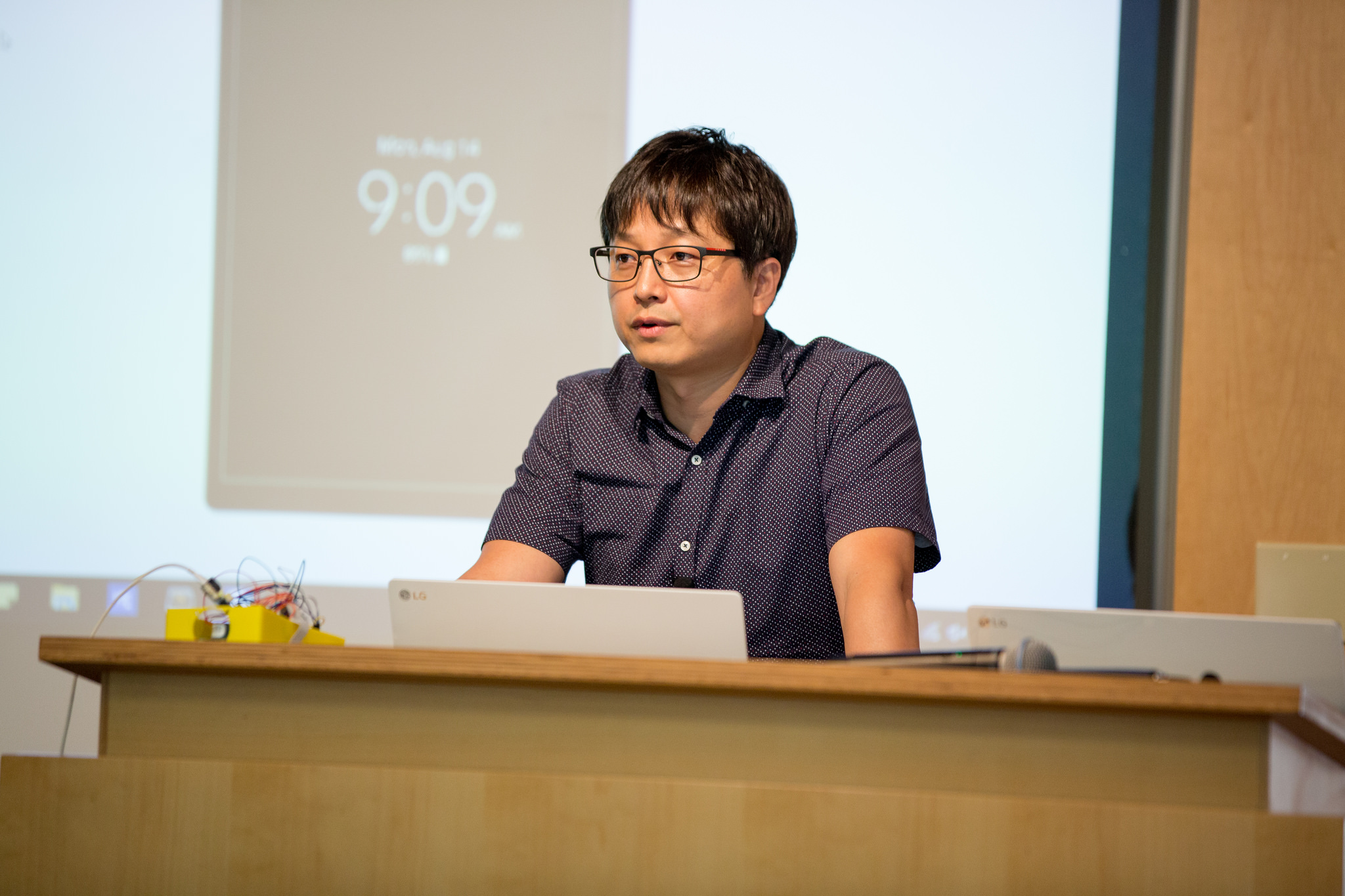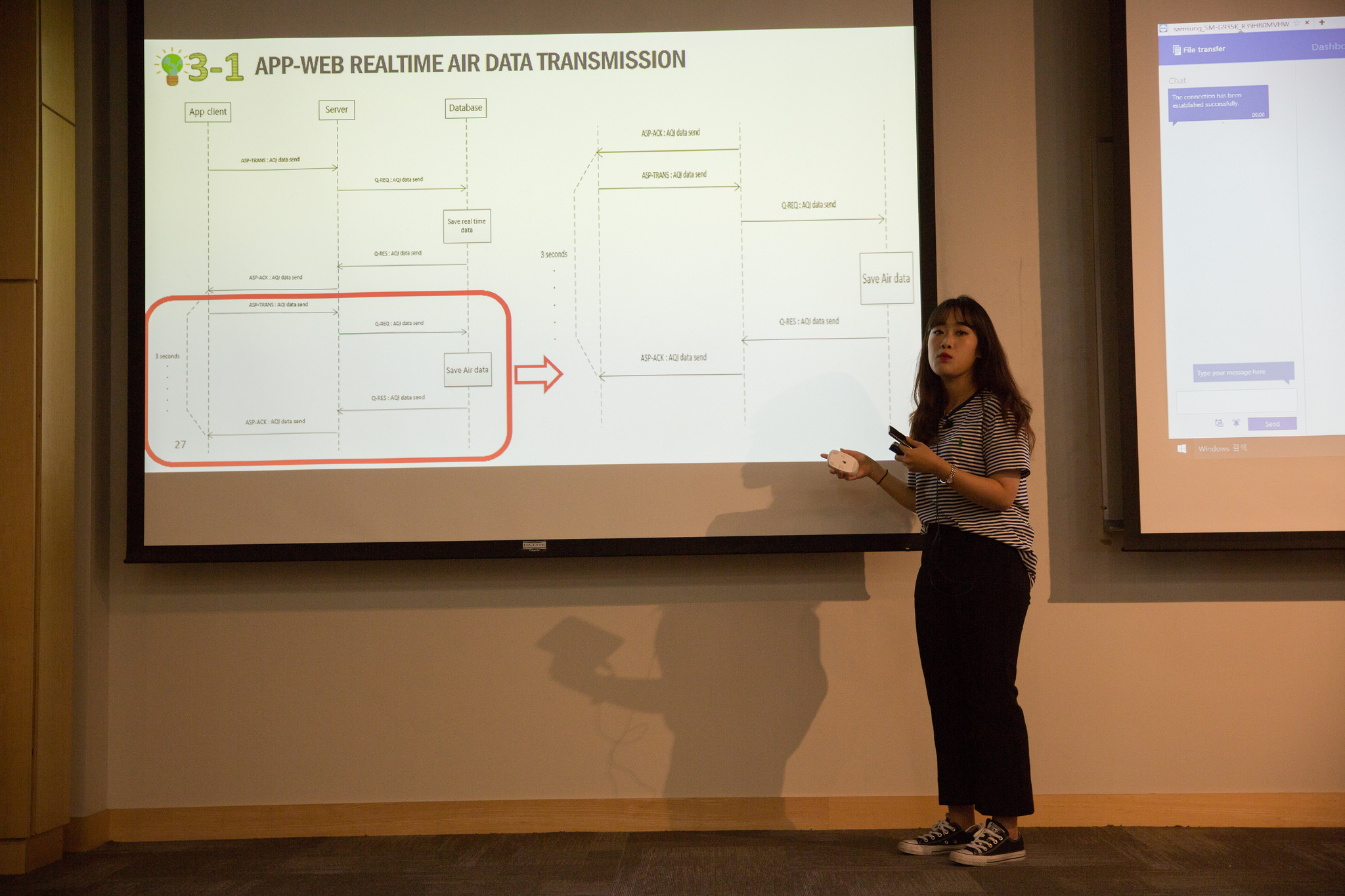QI IoT Platform Development Project Nets Another Hackathon Award (and Two New Interns)
San Diego, Calif., Aug. 30, 2017 — A University of California San Diego program dedicated to teaching Korean scholars the basics for engineering a connected world is growing in size — and with wins at the past two San Diego SmartCity Hackathons, also growing in influence.

The Qualcomm Institute’s Internet of Things (IoT) Platform Development Project has, for the second year running, provided project-based instruction to students from South Korea in software design for the emerging IoT — a network of various everyday devices embedded with software and electronics that enables them to share information. These “smart” devices can include pacemakers, cars, thermostats, refrigerators and streetlights.
The students in QI’s health-focused IoT initiative learn how to program air pollution and heart rate monitor applications from the front-end to the back-end, using IoT sensor boards, Android app clients and web clients, as well as software for the apps’ back-end server and database. The students also learn how to track and visualize the location of IoT sensors and measurement data collected from IoT sensors in real time, then forward the data to the web server and have that information displayed by both the app and web clients.

For the first time this year, five computer science students from South Korea's Chosun University joined 15 students from past partner Keimyung University, with two past participants in the six-week program newly hired as paid interns at the Qualcomm Institute.
The student interns — Changeun Park and Junhee Park — are both undergraduate computer science majors at Keimyung University and were finalists at both the 2016 and 2017 San Diego SmartCity Hackathon, a three-day competition where student teams compete to design technology for climate-related solutions for the city. They were flown back to the United States for the hackathons and ultimately developed a software platform for aggregating city databases in 2016. While working for QI this year, they built a new Smart City platform using the General Electric (GE) CityIQ’s real-world cloud datasets to reduce parking gridlock in the city of San Diego.

“QI has been creating a series of successful project-based education systems,” says Prof. Seokheon (Justin) Cho, a principal network architect at QI and project investigator for the program. “Students learn how to develop an IoT platform using a systematic and efficient approach over the six-week program, and outstanding students selected from the program have opportunity to work at QI for one year, deepen their knowledge intensely, and thus build up a massive stepping-stone for their better future life. Furthermore, this program promotes diversity by creating a co-working environment for UCSD undergraduate and graduate students as well as QI engineers.”
The IoT Platform Development project stems from a partnership between Cho and Professor Beomjoon Kim at Keimyung University in South Korea and developed four years ago when Kim, now a professor at Keimyung University, hosted a program that brought 30 students to the San Diego and Los Angeles area. Although originally just in the area for a visit, Kim and Cho saw the potential to develop an innovative program.

Participants in the IoT program consistently cite the program’s high-quality instruction as its chief asset (though San Diego’s beaches and weather are popular among the students, too).
“The most important thing I have learned is even if it’s difficult, if I go step-by-step from the basics,” says student Jonghyun Jun. “I’m glad to learn about project design, drawing sequence diagrams and block diagrams, which is basic but critical and essential. It was a good experience for me and someday I might use what I learn from here.”
Hyewon Kim adds that instruction in “system design was the most important thing because it’s difficult to learn in detail in Korea. If someone is interested in system design, it’s going to be a good experience.”
Related Links
Media Contacts
Tiffany Fox
(858) 246-0353
tfox@ucsd.edu
